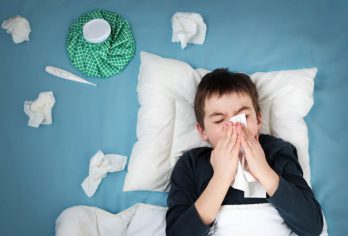This time of the year has always been known for bringing its own share of fevers, sniffles, and sore throats into your home. However, what may have been no cause for alarm in years past may now strike fear into your heart. Living through the COVID-19 pandemic is no easy matter, and it is even more stressful for parents who are worried not only about their own health but also about the health of the youngest members of their family. Instead of spending several sleepless nights worrying about whether your child has a common cold, influenza or COVID-19, read our helpful guide to get some of your questions answered.
The Symptoms of Influenza, Cold, and COVID-19
- The symptoms of a common cold are usually far milder than those of either influenza or COVID-19. Your child may have a runny nose, sore throat, coughing, sneezing, or even headaches for approximately a week. Some children may continue on with their typical daily plans without any changes, while others may slow down for a few days and prefer to get some extra rest.
- Compared to the common cold, influenza is usually much more uncomfortable. Not only may your child feel very tired and have a sore throat, but also he may have a mild to high fever, chills, and muscle aches. Some children even have digestive complaints, such as diarrhea or vomiting. Symptoms usually come on quickly but may not last as long as those of a cold. However, influenza is at least partly preventable with a readily available vaccine.
- COVID-19, which is caused by the novel coronavirus, has many of the same symptoms as influenza. However, it can often be differentiated by additional symptoms, such as changes in taste and smell and shortness of breath. Symptoms may also last much longer. While a vaccination has been approved for adults, there is not yet a COVID-19 vaccination approved for children.
Although we hope that this guide has pointed you in the right direction when it comes to taking the best care of your child this winter, we know that you may still have several questions. Let us do the worrying for you. We invite you to contact our office or to make an appointment to bring your child into Kids 1st Pediatrics in Apple Valley at your earliest convenience. We offer a variety of appointment times designed to fit into your busy schedule.

